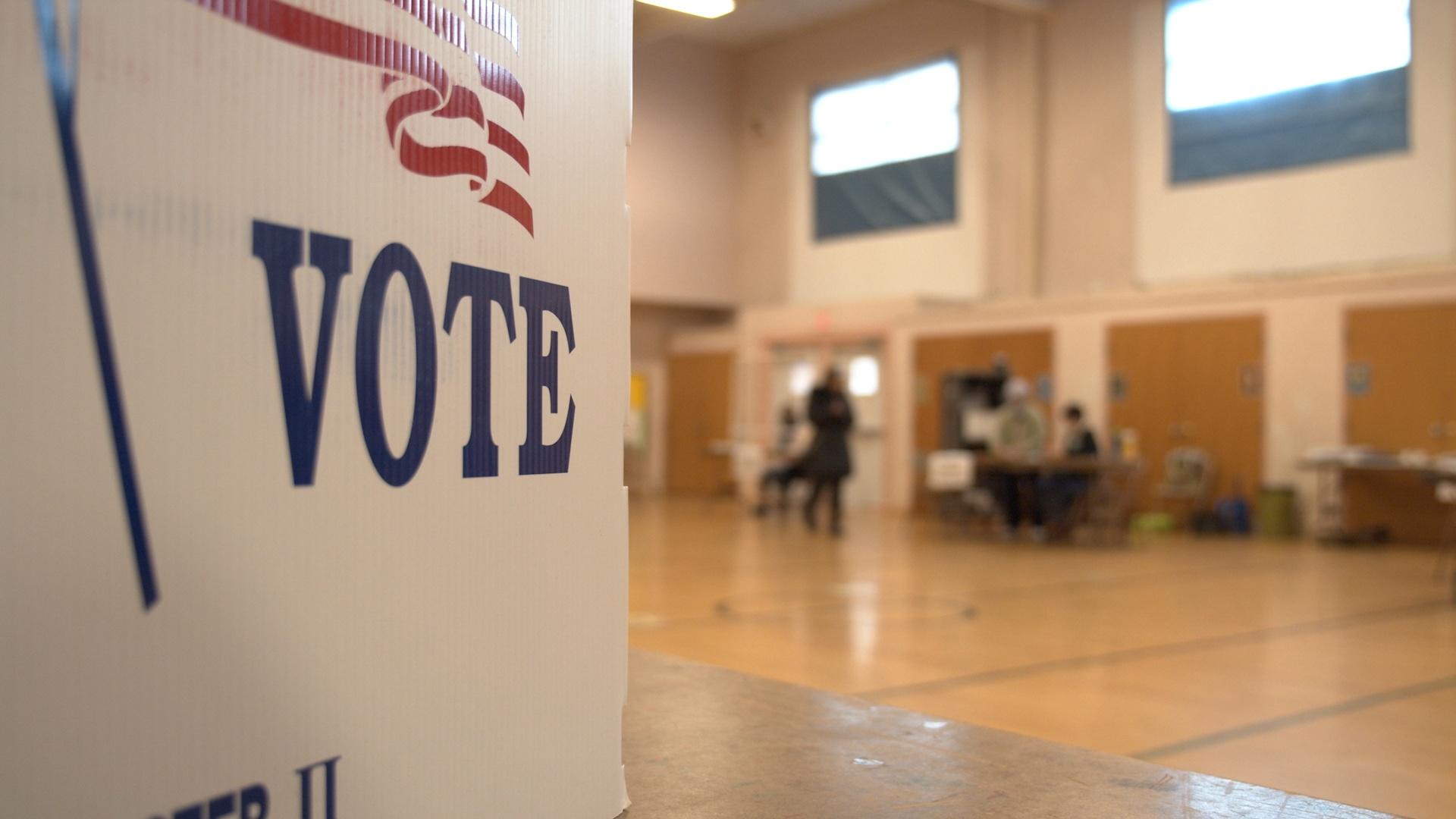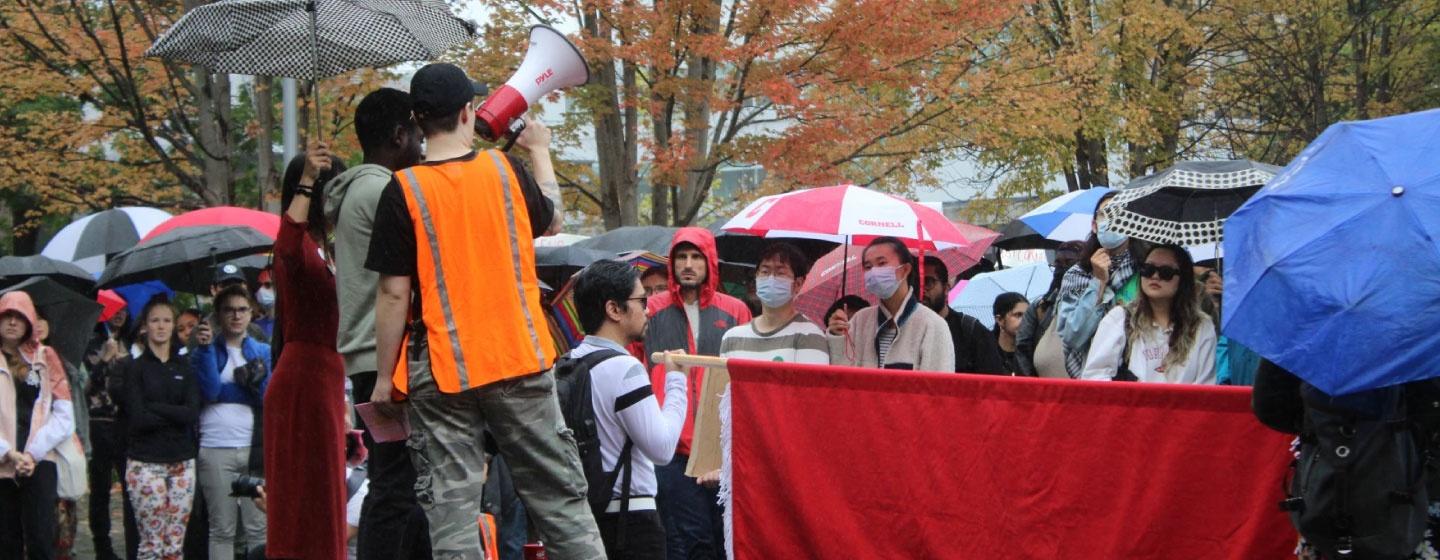New York’s “Prop One” Is Getting Pulled Into the Partisan Divide. What Would It Actually Do?

New Yorkers will vote on a ballot measure in November that proponents say will “enshrine abortion” in the state’s constitution. But not all legal experts agree it’s that simple.
On a soggy morning in Waryas Park in Poughkeepsie, Democrats like New York Attorney General Letitia James and Congressman Pat Ryan from the 18th District are speaking out in support of Proposition One, also called the “New York Equal Rights Amendment.”
The state constitution already shields New Yorkers from discrimination based on race, color, religion and creed, but Prop One would expand those categories to include sex, sexual orientation, gender identity, gender expression, ethnicity, national origin, age, disability, pregnancy, and “pregnancy outcomes” — including abortion.
“We’ve got to flip the ballot over and vote for Prop One, because a lot of people think we’re in a safe state, and we can’t take that for granted," says James. "And it’s important that we codify that in our constitution and protect the rights of all of us.”
Abortion is legal in New York for any reason up to 24 weeks of pregnancy. The vote on Prop One, regardless of the outcome, won’t change that. But proponents say the amendment would make it harder for state lawmakers to restrict the procedure going forward, as has happened in several states since the Supreme Court’s reversal of Roe v. Wade in 2022.
Democrats have been leaning into the issue of abortion rights in part to mobilize their base in campaigns ever since. Some Republican candidates have been doing the same by attacking Prop One, claiming its protections for gender identity would encourage transgender students to play on girls’ sports teams and allow minors to pursue gender-affirming surgery without their parents’ consent.
Vincent Bonventre of Albany Law School says Prop One would do neither of those things — but he doesn’t think it will enshrine abortion either, at least not on its own. Bonventre says the bill’s language does not explicitly list abortion as a fundamental right for New Yorkers. It simply says you can’t face discrimination for getting one.
“It does not preclude legitimate restrictions on abortion," says Bonventre. "And so, for example, if we get a conservative administration in the governor’s office, and they control the Assembly and the Senate, there’s nothing to stop them from enacting legislation that pretty severely restricts a woman’s right to choose. There’s nothing in here that stops that.”
Cameron McDonald, with the Empire Center for Public Policy, says how Prop One is interpreted will ultimately depend on the New York Court of Appeals, as state laws — past, present, and future — face legal challenges.
“If it passes, I think it’s going to be open season in the courts, challenging laws and so on," he adds.
This is something McDonald worries about. If so many classes of people are elevated to a protected status, how might the court decide in cases where they conflict with one another, like religion and sexual orientation? McDonald says it’s too soon to know for sure, but he wagers the courts could play an increasing role in the state’s culture wars as a result.
"We’re going to have court-made civil rights policies in New York that will depend on who has the resources to and the desire to bring litigation and obtain the results that they want," he explains.
Bonventre doesn't look at Prop One in such a dire lens. He agrees it would create significant work for the court, but he doesn’t consider that a bad thing. After all, many of the constitutional rights Americans cherish have been hashed out in court.
Ultimately, if the court is forced to decide on legislation that two classes disagree on, he imagines the decision will come down to: “Is this law reasonable?” Because even if you’re constitutionally protected from discrimination, the court’s answer to that question might still be “yes,” depending on how the law is tailored and whether it finds a compelling state interest. And that, again, is part of why Bonventre says Prop One will not enshrine abortion. He sees nothing in the amendment that would prevent a one-day conservative state government from passing restrictions on the procedure.
“It depends upon who’s in the legislature, who’s in the governor’s office, and who’s on the Court of Appeals," he says. "No way of getting around that.”
Back at the rally, speakers urge attendees to grab yard signs and “vote blue” down the ballot. Poughkeepsie resident Katie Hite says she will be voting for Prop One, and she wants to ensure her friends and loved ones know what’s at stake as well.
“I actually grew up in Texas, and I’m watching what’s going on down there very closely," she notes. "So, I’m a big fan of shoring up our rights here in the state of New York.”
Mimi Timmaraju, president and CEO of the advocacy group Reproductive Freedom for All, says make no mistake: this election will come down to abortion rights. 21 states have banned or heavily restricted the procedure since 2022, and there are ballot measures in 10 states this November.
“Nebraska has competing ballot measures, and whichever one gets the most votes wins...So it’s kind of getting crazy out there," says Timmaraju. "But New York is really important. The fact that New York is such a progressive state, and it doesn’t have the protection in the constitution is worrisome.”
Election Day is November 5.
This article was originally published on WAMC.
Related

Cornell Graduate Student Union Rallies Against Suspension of International Student
The union is demanding that Cornell bargain with them over the suspension of a graduate student who participated in a pro-Palestinian protest that shut down a career fair.


